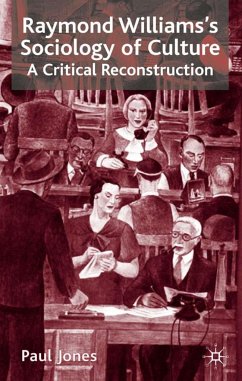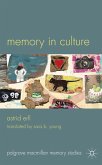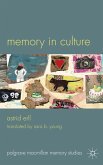This detailed study of Williams unlocks his late sociology of culture. It covers previously overlooked aspects, such as his critique of Birmingham cultural studies, his use of an Adorno-like approach to 'cultural production', his 'social formalist' alternative to structuralism and post-structuralism and his approach to 'the media'.
Hinweis: Dieser Artikel kann nur an eine deutsche Lieferadresse ausgeliefert werden.
Hinweis: Dieser Artikel kann nur an eine deutsche Lieferadresse ausgeliefert werden.
'A critical, meticulous and coherent account of Raymond Williams's principal ideas and intellectual development, Paul Jones provides a scholarly overview of Williams's immanent emancipatory theory. In charting the growth of Williams's sociology of culture, this volume explores the complex and conflictual relations between sociology, cultural studies and literary theory. The Raymond Williams book for which we have all been waiting.' - Bryan Turner, University of Cambridge, UK
'One of the most important examinations of Williams's work to date. Skilful summary exposition and explanation of Williams's positions(s) are valuably supplemented by a depth of theoretical knowledge that seeks throughout to place Williams's work in a broader context. Exploring as it does interactions and borrowings between sociology, semiology, literary history, Marxist theories, Frankfurt School critical theory and (post)structuralism(s), the book would make a fine contribution to graduate-level courses that address the emergence and complexities of critical-cultural analysis throughout the past 50 years or more.' - James Hamilton, University of Georgia, USA, in Media, Culture and Society
'One of the most important examinations of Williams's work to date. Skilful summary exposition and explanation of Williams's positions(s) are valuably supplemented by a depth of theoretical knowledge that seeks throughout to place Williams's work in a broader context. Exploring as it does interactions and borrowings between sociology, semiology, literary history, Marxist theories, Frankfurt School critical theory and (post)structuralism(s), the book would make a fine contribution to graduate-level courses that address the emergence and complexities of critical-cultural analysis throughout the past 50 years or more.' - James Hamilton, University of Georgia, USA, in Media, Culture and Society








